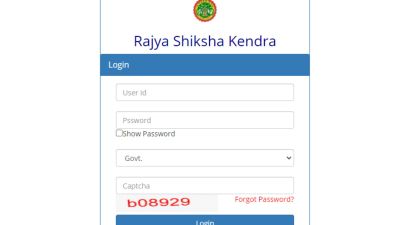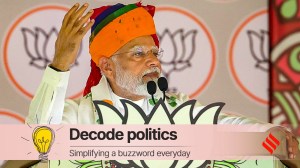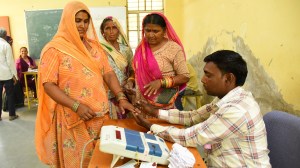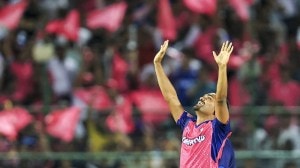- India
- International
The filmmaker who’s driven by an ‘unbearable rage’ against injustice
In her new film, Leena Manimekalai uncovers the life of one of the most marginalised communities in Tamil Nadu
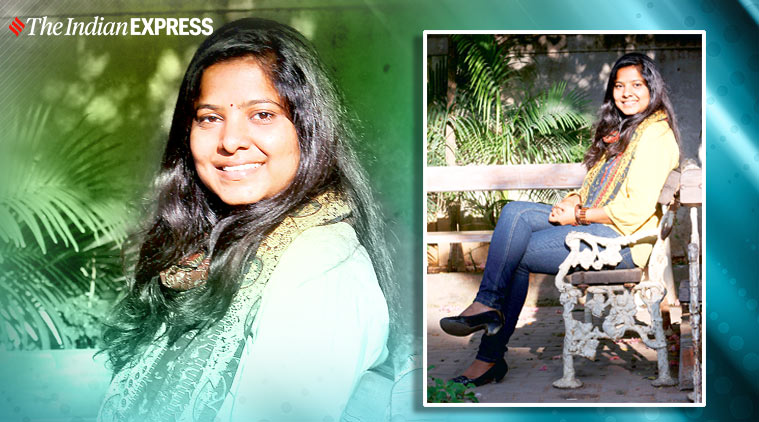 Leena Manimekalai, 39, grew up in an agrarian family rooted in communist values in Maharajapuram village in Tamil Nadu’s Virudhunagar district.
Leena Manimekalai, 39, grew up in an agrarian family rooted in communist values in Maharajapuram village in Tamil Nadu’s Virudhunagar district.
In 2015-16, while researching for her docu-feature Rape Nation, Chennai-based filmmaker Leena Manimekalai came across a newspaper article about the Puthirai Vannar community. Struck by the injustice suffered by them, she read up more. A volume of BR Ambedkar’s writings and speeches had noted: “In the Tinnevalley District of the Madras Presidency, there is a class of unseeables called Purada Vannans” who “are not allowed to come out during daytime because their sight is enough to cause pollution,” Ambedkar wrote. “They (leave) their dens after dark and (scuttle) home at the false dawn like the badger…. No civilisation can be guilty of greater cruelty.”
So, she travelled to VK Puram village in 2016-17 to meet the vulnerable Dalit sub-caste, whose lives, she realised, had been stymied in darkness. Her research suggested that “a hundred thousand Puthirai Vannar families across Tamil Nadu are enslaved by the caste system”.
On and off for two years, starting from 2016, she lived in VK Puram, in the house of Moorthy, a first-generation graduate, on and off for two years, staying with his family, “cooking, eating, sleeping and making cinema under one roof”. “It is a shame that the conditions haven’t changed much,” says Manimekalai.
The Puthirai Vannars are washer people, who wash the shroud of the dead, clothes of menstruating women, among the Dalits. While most other washer communities were Other Backward Classes (such as those who wash for Brahmins and Shudras), the Puthirai Vannars are at the mercy of Dalits to obtain validation and caste certificates. As she travelled in Tirunelveli, she realised that in some villages, they are still not allowed to step out during the day.
Folklore narrated to her by the villagers, turned her curiosity into a feature-length fiction, Maadathy – An Unfairy Tale, which, after a censorship tussle, premiered at Busan International Film Festival last month and is competing at the 25th Kolkata International Film Festival this week. The story of Maadathy, a subaltern goddess, was an example of how the “cursed, wounded and wronged become gods”. “For the upper castes, goddesses descend from heaven, but among a lot of the lower castes, goddesses are believed to come from among fellow human beings,” says Manimekalai’s lawyer Indira Unninayar, who fought to get an A-certificate for the film without any cuts.

Manimekalai’s film tells the story of Yosana, a Puthirai Vannar girl, growing up in the lush Western Ghats. She is the “wild bird” who frolics in the forest and dips in the river, but must stay out of sight of other castes. She has desires and dreams, and her sighting of a young donkey herder, while he is bathing, sets into motion events that end in grievous assault. Yosana “is wronged because of her gender and caste,” says Manimekalai, adding that she wants people to watch the film to care about this marginalised community. “If someone is not equal, we are all unequal,” she says.
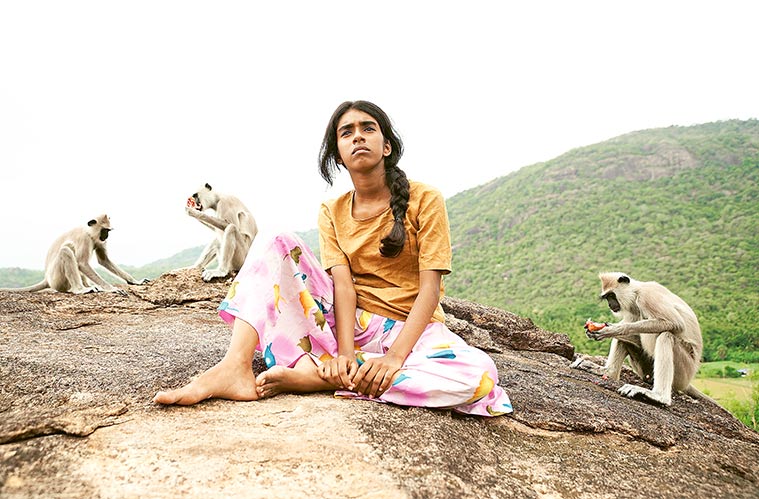 Wild bird: A still from Maadathy — An Unfairy Tale.
Wild bird: A still from Maadathy — An Unfairy Tale.
The filmmaker’s engagement with questions of equality has led to a body of work that includes Sengadal, The Dead Sea (2011) her debut film, a docu-fiction, about atrocities faced by fisherfolk at the India-Sri Lanka border shores in Tamil Nadu’s Dhanushkodi; and the docu-feature Rape Nation (under production) about women, such as Soni Sori and Bhanwari Devi, who have triumphed over their pasts of sexual violence and have become leaders on their own. The political is also personal and Manimekalai is one of several women who have spoken out against endemic sexual abuse in the entertainment industry as a part of the #MeToo movement. In June, director Susi Ganesan filed a criminal defamation suit against her, for accusing him of sexual assault.
Manimekalai, 39, grew up in an agrarian family rooted in communist values in Maharajapuram village in Tamil Nadu’s Virudhunagar district. Her grandfathers and uncles were CPI leaders; her father was a first-generation graduate and Tamil professor; her grandmothers and mother are farmers, raising children along with cows, goats, hens and trees.
As a child, she attended screenings at film societies with her father, whose PhD thesis was on veteran Tamil director P Bharathiraja, with whom she would later work as an assistant director. “But the space was too feudal, misogynistic and predatory for my sensibilities,” she says. Activist videos, cheap cameras, microphones and pirated editing software made her a filmmaker.
It is, however, in poetry that she finds her best expression. With five collections out, sixth in the making, the Tamil poet has been “loved and hated”, “banned, witch-hunted, trolled, slut-shamed and legally sued” for her poetry (her second collection Ulagin Azhagiya Muthal Penn/First Beautiful Woman of the World, and third collection Parathaiyarul Raani/Queen of Sluts drew legal action because of its explicit content). Every reaction, however, strengthened her commitment.
“Poetry makes me feel alive and kicking. I use it as chilli powder. As lavender dust. As scent of a rain,” she writes in an email.
Her father’s death at a young age led to the “vacuum and chaos” that defined her. She was forced to pursue engineering over literature and to get married at 18. But Manimekalai could not be contained by conventions. She walked out of her home, had an inter-caste, inter-religious marriage. She then divorced, came out as bisexual, wrote about sexuality. She says she developed an “unbearable rage” for injustice.
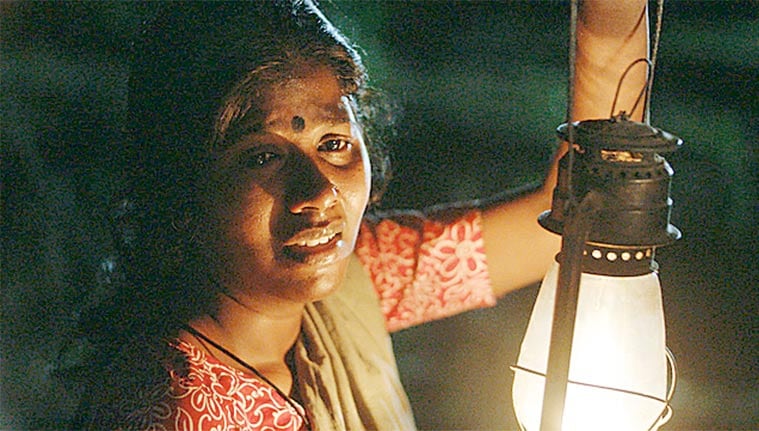 A still fom stills from Maadathy — An Unfairy Tale. Manimekalai’s film tells the story of Yosana, a Puthirai Vannar girl, growing up in the lush Western Ghats.
A still fom stills from Maadathy — An Unfairy Tale. Manimekalai’s film tells the story of Yosana, a Puthirai Vannar girl, growing up in the lush Western Ghats.
In her cinema, run-ins with censorship have been routine. Sengadal was not cleared initially by the CBFC, citing “vulgar and obscene language”, “nudity” and “impact on friendly relations between India and Sri Lanka”. During that turmoil, documentary filmmaker Anand Patwardhan introduced her to Unninayar, who had worked on his appeal to telecast his award-winning film Father, Son and Holy War (1995) on Doordarshan.
In Maadathy’s case, the CBFC Chennai RO (regional officer) objected to cusswords as “vulgar and obscene”, and to frontal nudity —“shown for a few seconds, it is important for Yosana’s story as it invoked her primal desire at seeing her first man nude”. The RO also objected to the word “abhishekam” that the rapists use while raping her — “it is used specifically to bring out the irony between rape and abhishekam (consecration) of the village’s female deity,” says Unninayar, who fought for Manimekalai’s “right to show a social evil, when the objective is to cure the system of it”. The Film Certification Appellate Tribunal asked for just one change: to tweak “each deity” to “some deities” in the subtitle “behind each deity is a tale of injustice”. That was a small price to pay to get the clearance, says Unninayar.
In all of this, the defamation case has kept her more occupied than she would have liked to. In a 2017 Facebook post, she had described a sexual harassment ordeal in 2005, but named Ganesan as the alleged assaulter only last October. Actor Amala Paul, who has acted in Ganesan’s film, spoke out in Manimekalai’s support, tweeting how Ganesan subjected her to “double-meaning talks…unchivalrous bodily contacts”.
“He thinks he can bully me. His legal complaint is a classic document of victim-shaming. It quotes my tweets and Facebook posts, calls me ‘anti-national’, ‘queer’, ‘A’dult’ writer, etc. and concludes that I am of questionable character. But however testing, these trials give me a chance to raise my voice, my dissent, my truth,” says Manimekalai.
“I sometimes wonder if this path is self-destructive,” she says, “I always come back to an empty house after months of research, writing and shooting, eternally broke, with fading relationships, and PTSD. After you manage to make a film, the trial of censorship, legal fights and distribution challenges await.” And yet, says the filmmaker, who’s also working on an Indo-Canadian film on poet Kamala Das, releasing a film or a book feels like giving birth, “something changes in me every time, and that gives meaning to my existence. My films are my way of showing solidarity to fellow human beings.”
This article appeared in the print edition with the headline ‘The Invisibles’
Apr 23: Latest News
- 01
- 02
- 03
- 04
- 05











